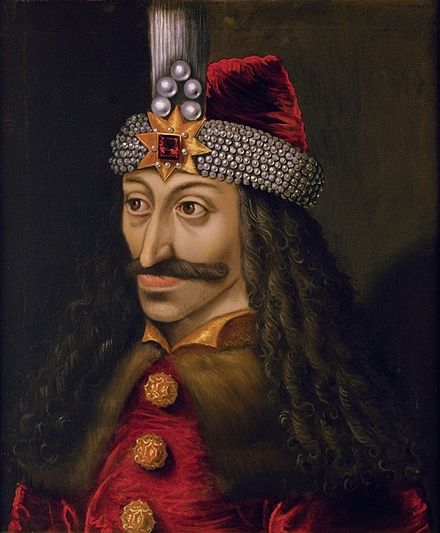1342
Julian of Norwich, English mystic is born. The author of Revelations of Divine Love, the first published book in English written by a woman, was a religious recluse whose true name is still unknown. In the 1370s she began to experience visions whose meanings she explored in a series of books. Her view of God focused primarily on His loving nature: “God loved us before he made us; and his love has never diminished and never shall.” Recent scholarship (Denys Turner’s Julian of Norwich, Theologian) takes her seriously as a thinker.
1431
The birth of Vlad III, aka Vlad the Impaler, aka Vlad Drakul, aka Dracula, prince of Wallachia. Though known in folklore for his extreme cruelty and for his inspiration for Bram Stoker’s literary villain, Vlad is renowned in the Balkans for his defence of Christian lands against Turkish Islamic expansion. After the fall of Constantinople in 1453, the Ottoman emperor Mehmet the Conqueror attempted to complete the Muslim conquest of southeastern Europe. Vlad refused to acknowledge Turkish overlordship or pay the jizya tax imposed on Christian subjects. His armies inflicted a number of defeats on the Turks before he died in battle in 1476.

1674
Of Mans First Disobedience, and the Fruit/Of that Forbidden Tree, whose mortal tast/ Brought Death into the World, and all our woe,/With loss of Eden, till one greater Man/Restore us, and regain the blissful Seat, Sing Heav’nly Muse . . .
John Milton, English writer, dies. Though his reputation as a poet had been in the making before the outbreak of the English Civil War in 1642, his work during the Puritan Commonwealth was of a polemical nature. He argued for the legitimacy of Christian divorce, for free speech (Areopagitica) and for the right of a people to overthrow a tyrannical ruler (On the Tenure of Kings and Magistrates). His blindness, which became total in 1654 did not prevent him from continuing his political writings or his poetry (see his sonnet “On My Blindness”). The restoration of the monarchy forced him into hiding for a time but he managed to live peacefully until his death. In 1667 he published Paradise Lost, the epic poem on the Fall of mankind. Milton’s standing as a literary figure has always been controversial. C.S. Lewis was a fan; T.S. Eliot was not. Curious readers unwilling to attempt an ascent on the summit of Paradise Lost might try his Christmas poem “On the Morning of Christ’s Nativity”: “See how from far upon the Eastern road/ The Star-led Wizards haste with odours sweet”.